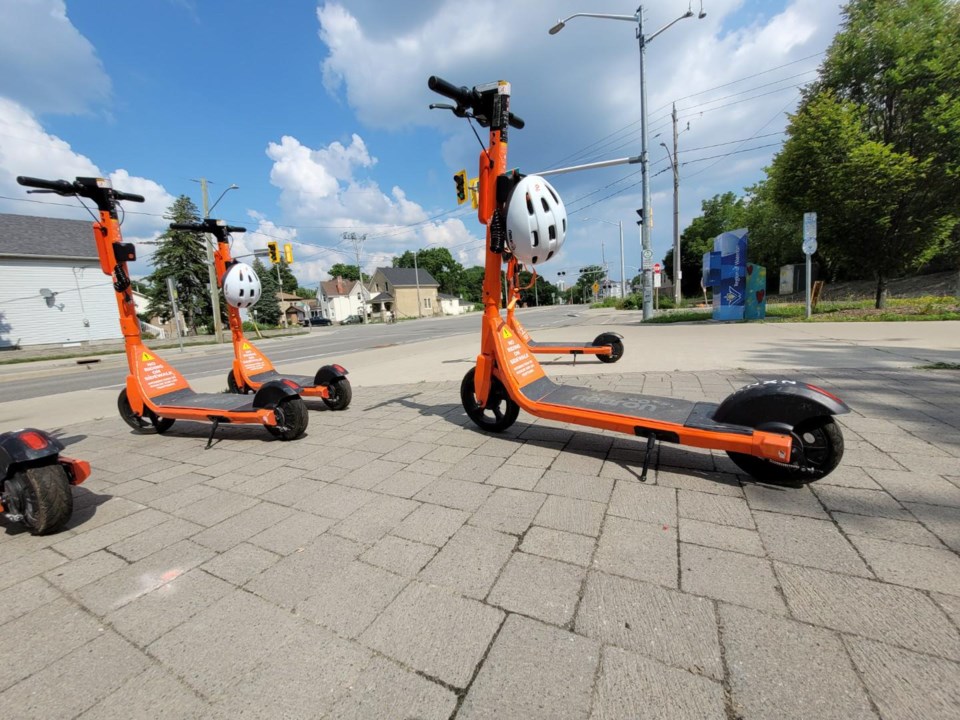If the use of e-scooters on roads is to continue, extending an existing provincial pilot project, city officials say it’s “essential” roads be kept in better condition in order to accommodate the ‘micromobility’ devices.
However, enhanced road maintenance standards won’t be coming to Guelph unless they’re mandated by the province, explains Jennifer Juste, the city’s manager of transportation planning.
“Any changes to (road maintenance) would have to be reflected with an increase in budget, and we don't typically look for reasons to increase that budget unnecessarily,” she said. “But if it does become a provincially mandated level of service increase, then that would be different.
“One thing that we've experienced is … budgets are tight at the municipality and we're doing everything we can to keep taxes reasonable.”
The provincial government launched a five-year pilot project in 2020, permitting electric scooters to be used on roads similar to the way bicycles are allowed, provided the respective municipal council also endorses the idea.
Guelph council signed on to the initiative in July of 2023, permitting e-scooters on city streets, multi-use paths and cycling tracks, but not on trails, sidewalks or in city parks.
With that pilot project set to end in a few months, provincial officials are considering extending it another five years and they’ve asked municipalities to comment on the idea. The Guelph bylaw remains in affect as long as the provincial initiative continues, Juste noted.
In commenting on the potential extension, city officials raised the issue of road maintenance.
“I think that's just logical,” said Juste. “Minimum maintenance standards are historically and traditionally prioritizing the safety of our motorized road vehicles – so your typical cars and trucks that are on the road – and, as you can imagine, their tires are much wider, larger.”
E-scooters have a higher power-to-mass ratio and can achieve higher speeds due to their lighter weight, as explained in the city’s comments to the province.
“This characteristic, while beneficial for speed, makes them less stable on rough road conditions, such as potholes, cracks, and roots, providing users with less reaction time,” wrote Doug Godfrey, the city’s general manager of operations.
Efforts to reach the Ministry of Transportation for comment on about whether increased minimum road standards are being considered Ontario-wide weren’t immediately successful.
Juste said she’s unaware of any such effort in the works.
There isn’t any hard data on how often e-scooters are used in Guelph.
“We definitely saw a lot more users, just anecdotally, with their own personal electric scooters on our roads,” Juste said. “As far as we know, there haven't been any significant injuries or fatalities besides the one that was reported shortly after the pilot was initiated.”
Within weeks of council joining the pilot, a 52-year-old Guelph man died from injuries believed to have been sustained when he fell from an electric scooter. No helmet was found in the area, police reported.
“We heard from our partners at public health is that there have been so few collisions – which is great, you want to hear that – but because there is so few, there's privacy concerns with releasing any of that data,” said Juste.
At this point, 14 months after the bylaw came into effect, city enforcement officers have issued no tickets for violations.
